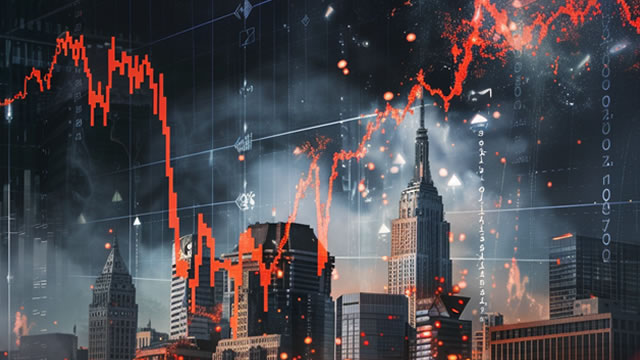Riding the Rollercoaster of Stock Market Volatility: A Long-Term Perspective
The stock market, an intricate web of economic activity and investment opportunities, has long been known for its volatility. This inherent unpredictability can evoke feelings of anxiety and uncertainty among investors, especially during periods of market turbulence. However, it is essential to remember that volatility is not an anomaly, but rather a fundamental aspect of the market.
Historical Perspective
Throughout history, the stock market has experienced numerous ups and downs. The infamous stock market crash of 1929, the Black Monday crash of 1987, and the 2008 financial crisis are just a few examples of significant market downturns. Yet, following each of these crashes, the market eventually rebounded, leading to new record highs.
The Importance of a Long-Term Perspective
Given the market’s historical volatility, it is crucial for investors to maintain a long-term perspective. This means focusing on your investment goals and avoiding the temptation to make hasty decisions based on short-term market fluctuations. Instead, staying the course and sticking to your investment plan can help you weather market downturns and ultimately achieve your financial objectives.
Personal Impact
On a personal level, stock market volatility can significantly impact your investment portfolio. It is essential to understand your risk tolerance and develop a diversified investment strategy. This can help mitigate the potential negative effects of market downturns and ensure that your long-term financial goals remain on track.
- Understand your risk tolerance: Determine how much risk you are comfortable taking on. This can help guide your investment decisions and ensure that you are not overexposed to volatile assets.
- Diversify your portfolio: Spread your investments across various asset classes and sectors to minimize risk.
- Maintain a long-term perspective: Focus on your investment goals and avoid making hasty decisions based on short-term market fluctuations.
Global Impact
On a global scale, stock market volatility can have far-reaching consequences. It can impact economic stability, trade relationships, and consumer confidence. However, it is essential to remember that the stock market is only one aspect of the global economy.
- Economic stability: Stock market volatility can lead to uncertainty and instability in the economy, potentially impacting consumer confidence and business investment.
- Trade relationships: Market downturns can strain trade relationships, as countries may become less willing to engage in international trade during periods of economic uncertainty.
- Consumer confidence: Stock market volatility can impact consumer confidence, potentially leading to decreased spending and slower economic growth.
Conclusion
In conclusion, the stock market’s volatility is an inherent aspect of investment and an integral part of the economic landscape. While market downturns can be unsettling, it is essential to maintain a long-term perspective and focus on your investment goals. By understanding your risk tolerance, diversifying your portfolio, and remaining patient, you can weather market downturns and ultimately achieve your financial objectives.
On a global scale, stock market volatility can have far-reaching consequences. However, it is essential to remember that the stock market is only one aspect of the global economy. By staying informed and maintaining a long-term perspective, individuals and governments can help mitigate the potential negative effects of market downturns and promote economic stability and growth.





